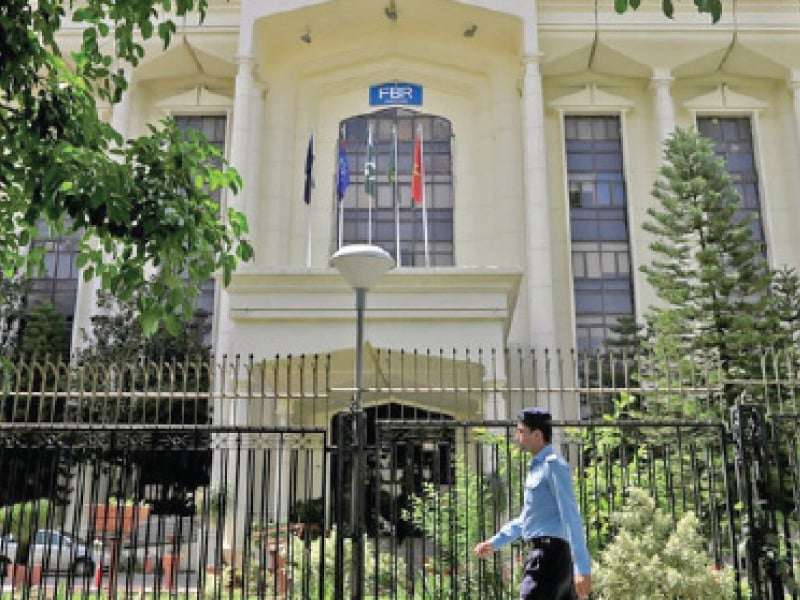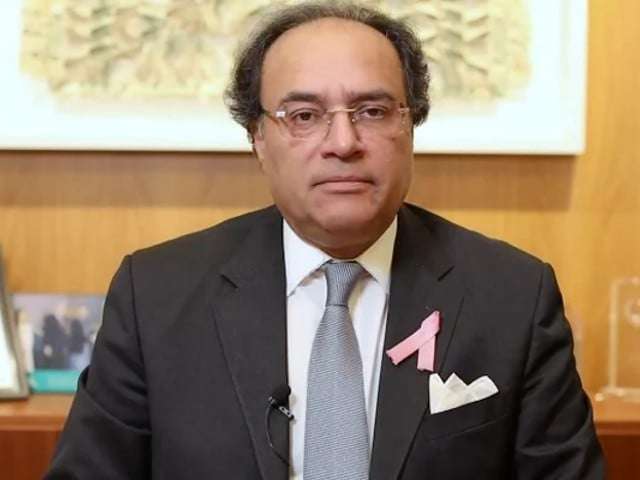Introduction: Pakistan’s Tax Authority Faces Crucial Challenges
In the face of mounting fiscal challenges, the Federal Board of Revenue (FBR) has made a significant request for a closed-door parliamentary committee session. This comes amid growing concerns over the country’s ability to meet its ambitious annual tax collection target of Rs12.97 trillion. According to the FBR, discussions with the International Monetary Fund (IMF) are ongoing, and the potential introduction of a mini-budget to address the tax shortfall remains a highly sensitive issue.
The request for a private briefing was made during a session of the Senate Standing Committee on Finance, with FBR Chairman Rashid Langrial stressing that the matter is too delicate to be discussed openly. The committee, chaired by Senator Saleem Mandviwalla, addressed the looming shortfall that has emerged during the first half of the fiscal year.
In this article, we will explore the FBR’s current fiscal challenges, its discussions with the IMF, the potential for a mini-budget, and the measures being taken to strengthen Pakistan’s tax collection system.
The Fiscal Crisis: Understanding Pakistan’s Tax Shortfall
FBR’s Struggle to Meet Tax Collection Targets
Pakistan’s tax system has long been underperforming, and this year, the gap between the revenue target and actual tax collection has become a cause for serious concern. For the fiscal year, the FBR had set an ambitious target of Rs12.97 trillion, but the initial months have seen significant setbacks. In the first four months, the FBR already faced a shortfall of Rs190 billion.
The government’s fiscal policy has been impacted by a combination of factors, including slow economic growth, declining inflation rates, and weaker enforcement of tax laws. The IMF’s involvement has become crucial as the country navigates its financial challenges. According to Langrial, the shortfall largely stems from inaccurate macroeconomic assumptions, which have affected the growth projections in key sectors.
IMF’s Pressure and the Likelihood of a Mini-Budget
Under the terms of Pakistan’s agreement with the IMF, if the shortfall in tax collection exceeds 1% of the target, the government may be forced to introduce a mini-budget to plug the gap. As the IMF has set a target of over Rs6 trillion for the FBR for the first half of the fiscal year, the shortfall becomes a critical issue. With a potential breach of the 1% threshold, discussions around the mini-budget have gained traction.
Langrial, however, did not confirm nor deny the possibility of a mini-budget during the Senate Standing Committee on Finance meeting. Instead, he requested that the committee hold a closed-door session to further discuss the sensitive issue. This has led to speculation that a mini-budget could be on the horizon, though tax officials have suggested that it might not be necessary at this stage.
The FBR’s Plan to Address the Tax Shortfall
Strengthening the Tax Collection System
To address the growing fiscal deficit, the FBR is taking several measures to improve tax collection efficiency. The government has approved a substantial Rs32.5 billion package aimed at enhancing the FBR’s operational capacity. A significant portion of these funds will be used for anti-smuggling initiatives, which are crucial for increasing government revenue.
One of the key components of the package is a focus on increasing the FBR’s enforcement capabilities. As Langrial pointed out, the underperformance in tax collection is not just due to weak economic conditions but also weak enforcement mechanisms. With the new package, the FBR plans to upgrade its technology and human resources to ensure better compliance and collection.
Targeting Unregistered Wholesalers and Retailers
In addition to strengthening enforcement, the FBR is also targeting specific sectors to increase revenue. A major focus will be on unregistered wholesalers and retailers who have not been paying taxes. By tracking their payments as unregistered entities, the FBR hopes to recover dues that have previously gone uncollected.
This will also include a crackdown on non-filer wholesalers, with the aim of ensuring that they comply with tax regulations, even if it means imposing higher withholding taxes on them. This is expected to generate additional revenue and improve the tax compliance rate in these sectors.
Key Measures to Improve the FBR’s Capacity
Government Approval for Enhanced Operational Resources
To bolster its capacity, the FBR has received approval for additional funding aimed at improving its operational capabilities. This includes funding for up to four extra salaries for employees, as well as the purchase of over 1,000 new vehicles to enhance mobility and efficiency. These measures are part of the government’s broader strategy to equip the FBR with the resources it needs to meet the Rs12.97 trillion target.
Furthermore, the FBR is also working to improve its relationship with taxpayers, particularly through the Point-of-Sale (POS) system. Since July 2023, the FBR has collected Rs647 million through the Rs1 POS fee charged to shoppers. This revenue has been used for employee welfare and will be reinvested into enhancing the overall functionality of the FBR.
The Role of Technology in Tax Collection
A significant part of the FBR’s strategy to improve tax collection is the use of technology. The integration of digital systems, such as the POS system, allows the FBR to track and monitor transactions more effectively. However, challenges remain, especially in areas like tax fraud and non-compliance. To address this, the FBR has implemented a prize scheme to encourage consumers to report fake POS receipts. This scheme, although temporarily discontinued due to fraudulent complaints, will be relaunched in Islamabad to increase transparency and accountability.
The Tajir Dost Scheme and its Impact
Minimal Revenue from the Tajir Dost Scheme
One of the government’s initiatives aimed at enhancing tax compliance among traders is the Tajir Dost Scheme. However, the scheme has not generated the expected revenue. Despite this, traders have contributed around Rs12 billion in income tax, with approximately 600,000 traders filing returns under the normal tax regime.
The FBR has acknowledged the shortcomings of the Tajir Dost Scheme and has now shifted its focus to targeting non-filer wholesalers. These wholesalers have been identified as a key source of untapped revenue, and the FBR is determined to ensure that they are brought into the tax net.
FAQs on Pakistan’s Tax Collection and the FBR’s Initiatives
1. What is the FBR’s tax target for this fiscal year?
The FBR’s target for this fiscal year is Rs12.97 trillion, which remains unchanged despite the challenges faced in the first few months of the fiscal year.
2. What is the role of the IMF in Pakistan’s tax policy?
The IMF has set strict targets for Pakistan’s tax collection, and the country is required to meet these targets under the terms of its agreement with the IMF. If the tax shortfall exceeds 1% of the target, the government may need to introduce a mini-budget.
3. Why is the FBR seeking a closed-door session with the Senate Standing Committee?
The FBR is seeking a private session to discuss the sensitive issue of a potential mini-budget, which could have significant economic implications for Pakistan.
4. How will the FBR address the shortfall in tax collection?
The FBR is strengthening its operational capacity by using technology, targeting unregistered wholesalers, and enhancing enforcement. Additionally, a Rs32.5 billion package has been approved to boost its capacity.
5. What is the Tajir Dost Scheme, and why hasn’t it been successful?
The Tajir Dost Scheme was introduced to encourage traders to comply with tax regulations. However, it has not generated the expected revenue. The FBR is now focusing on non-filer wholesalers to increase tax collection.
Conclusion: The Path Forward for Pakistan’s Tax System
Pakistan’s tax system faces significant challenges, with the FBR struggling to meet its ambitious targets. However, the government’s proactive approach, including the approval of a Rs32.5 billion package and the introduction of technology-driven initiatives, shows promise. As the IMF continues to monitor Pakistan’s fiscal progress, the introduction of a mini-budget remains a possibility, but it will depend on how effectively the FBR can bridge the tax shortfall in the coming months.
The success of the FBR’s strategies will determine whether Pakistan can meet its fiscal targets and stabilize its economy in the face of growing external and internal pressures.
SEE ALSO:
https://flarenews.pk/2024/11/14/pak-vs-aus-will-rain-play-spoilsport-in-the-first-t20i-at-brisbane/



